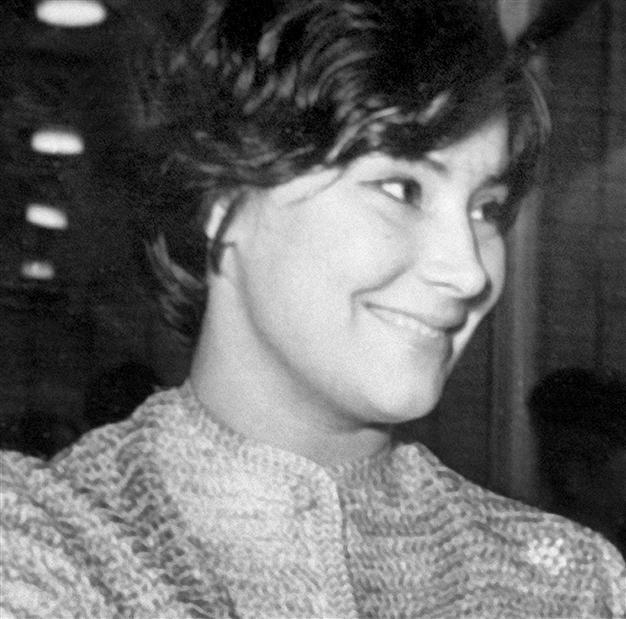Russia's Samoilova, Soviet-era film star, dead at 80
MOSCOW - Agence France-Presse

A picture taken in Moscow in July 1961, shows Soviet-era movie star Tatyana Samoilova. Samoilova best known for her roles in "The Cranes are Flying" and "Anna Karenina", died aged 80. AFP Photo
Tatyana Samoilova, a Soviet-era movie star best known for her role in a Cannes-winning war film, "The Cranes are Flying", died on Monday at 80.Samoilova died early Monday in a Moscow hospital, a spokesman for Russia's Union of Cinematographers told AFP. She was suffering from heart disease, state television said.
President Vladimir Putin expressed his condolences to Samoilova's family and her fans.
The graceful wide-eyed actress shot to international attention for her part as Veronika in "The Cranes are Flying", a tragic story of love cut short by the outbreak of World War II.
Directed by Mikhail Kalatozov, the movie won the Palme d'Or at the 1958 Cannes Film Festival, the first and only Russian film to take the coveted award. Samoilova also won a special mention for her role.
The black-and-white melodrama tells of a young woman parted from her lover, who volunteers to go to the front and is eventually killed. She is persuaded to marry his cousin, a pianist, but later bitterly regrets her decision.
The film won plaudits for its emotional depth, and its title song about the souls of dead soldiers returning as cranes became one of the most powerful evocations of war in Soviet art.
Remarkably, during the Khrushchev-era thaw, Samoilova, then 24, was allowed to go to Cannes along with the film's male lead Alexei Batalov.
The dark, photogenic beauty -- who went against Western stereotypes of Soviet women -- caused a sensation at the time and was photographed kissing Pablo Picasso on the cheek after a screening of the film.
"She was not just an actress, an outstanding actress, a very talented actress. She became a symbol of a whole era," said film director Karen Shakhnazarov.
"In the memory of millions of viewers, Tatyana Samoilova is Veronika... a symbol of femininity, beauty and love that will live forever," culture minister Vladimir Medinsky told the Interfax news agency.
Internationally, Samoilova was also known for a 1967 Soviet-made version of "Anna Karenina", starring opposite her former husband, Vasily Lanovoi.
She remains the quintessential Anna Karenina in the eyes of many, topping an opinion poll by Snob.ru news site in which voters chose her rendition over that of British actress Keira Knightley.
"Today it's hard to imagine another Karenina, however many times they film the novel and however many global stars play the role," wrote Rossiiskaya Gazeta government newspaper.
But Samoilova struggled to find meaty film roles in her later career -- partly because her exotic looks were ill-suited to roles of Soviet factory workers or peasants.
"Of course she was a person of extraordinary talent, but she will be remembered primarily for her beauty," critic Anton Dolin said on radio. "Her beauty is of a very special kind -- a tragic beauty."
Born on May 4, 1934, in Leningrad, she studied ballet seriously and was invited to train at the Bolshoi Theatre but turned the chance down to become an actress.
In 1990, Samoilova was invited as a guest of honour to Cannes and received a lengthy standing ovation, but her latter years were reportedly marked by loneliness and il health.
Samoilova will be buried on Wednesday in Moscow's Novodevichy cemetery, reserved for Russia's political and cultural elite.
















